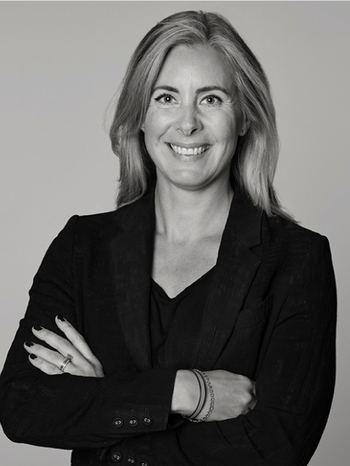Christo & Jeanne-Claude
"Running Fence (Project for Sonoma County and Marin County, State of California) - Estero Road"
Signed Christo and dated 1975. Fabric, pencil, charcoal, crayon and technical data collage on board mounted in plexi. Height 56.6, width 72 and depth 4.5 cm.
Provenance
Galerie Aronowitsch, Stockholm, Sweden.
More information
“It can’t be owned or rented or bought. The artist doesn’t get any richer, but you do.” says Jan van der Marck, a long-time collaborator of Christo to the TIME’s reporter, September 1976.
Running Fence, Sonoma and Marin Counties, California 1972-76, is an important and early art project that the artists Christo (1935-2020) and Jeanne-Claude (1935-2009) created together between 1972 and 1976.
Running Fence only existed for two weeks in September 1976, but behind the project lay 42 months of hard work. The monumental piece was constructed from approximately 240,000 square yards of heavy woven nylon fabric, 90 miles of steel cables, 2050 steel poles, 350,000 hooks and 14,000 earth anchors assembled by about 300 students. All parts of Running Fence were designed for removal so that no visible or physical trace would remain in the location.
As in all their artistic projects the artist couple accepted no sponsorship and financed everything themselves through the sale of preparatory sketches and studies, drawings and collages, scale models and lithographs.
“Since 1972, when Christo conceived the project, it has cost him $2,250,000 – raised by selling off his drawings and project studies to European collectors. A sixth of that sum went on fees to a battery of lawyers who, through 17 public hearings and three sessions of the California Supreme Court, won permission to construct the fence and defended it against suits brought by worried environmentalists, who derisively called it ”a roll of toilet paper”. There were bomb threats, and rigging trucks were vandalized.” TIME, September 20, 1976.
Artist
Christ (Born as Christ Vladimirov Javacheff), was a Bulgarian artist and Jeanne-Claude (born Jeanne-Claude Denat de Guillebon), were an artist married couple. Javacheff underwent his studies between 1953 and 56 at the Academy in Sofia, whereafter he continued his tuition in Wien. Yet, after only on term, the artist moved to Paris in 1958, where he lived stateless, having fled Bulgaria and lost his citizenship. He made a living by painting portraits, which he thought equated to prostitution. In 1958 he met his future wife, Jeanne-Claude and together they created “environmental art”. They famously "wrapped" the Reichstag in Berlin, the Pont Neuf in Paris, the 39 km long Running Fence in California, and The Gates in New York's Central Park. They deny that their exists any deeper meaning in their art beyond its aesthetic effect. Their intent was simply to create a different way of experiencing familiar "landscapes." None of their artworks were preserved, only the preparatory drawings and collages, which have given their art a legendary status. Projects were signed only "Christo" until 1994, when works from 1961 onward were also referred to as created by "Christo and Jeanne-Claude." Jeanne-Claude was born in Casablanca. She was educated in France and Switzerland and graduated in Latin and philosophy in 1952 from the University of Tunis. Jeanne-Claude passed away in 2009.
Read more





























